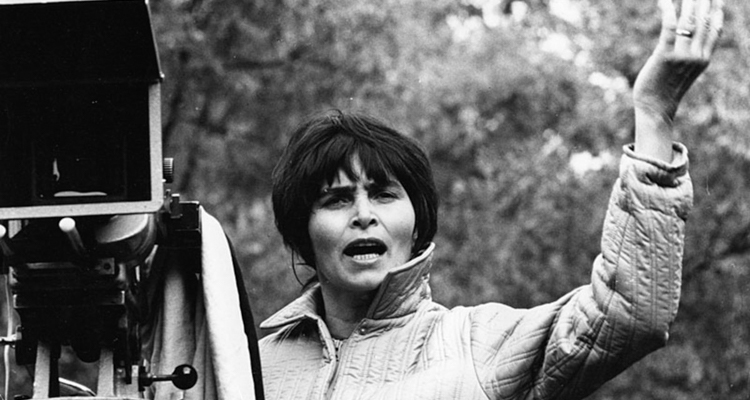BY: ANGIE PICCIRILLO
When you walk the hallways of any elementary or middle school, the walls are lined with inspirational posters pushing kids towards higher education, and reminding them to “follow your dreams.” The pessimist in me is somewhat sad when I read these things, because “following your dreams” leaves out a whole section of reality, and while I want more than anything to support the youth of our ever-deteriorating nation, especially when it comes to doing what they love, I want to also prepare them for how hard things might be – even with a college degree, a ridiculous amount of gumption, and an incredible amount of talent.
I was brought up to believe that girls can do anything boys can do, and I took on the world with that mentality – believing that I was just as strong, just as smart, just as fill-in-your-own-adjective-here, as any man. I was also taught to “follow my dreams,” my dream being to work in the film and television industry.
In college, I had applied to the film program – which had been making a conscious effort to see that “gender equality” was reflective in their admissions. Our class of twenty-five was almost 50 per cent female. At the time, I hadn’t realized that any major effort had been made, but I often tried to inject “female subject matter” into every project I would present in class. This included my award-winning senior thesis musical short, “PMS: A Period Piece,” simply because I thought the class could use a little more femininity, and a little more glitter.
But by the time we graduated, we hadn’t been prepared to take on the actual entertainment industry with what we learned in film school. Though we were somewhat aware that our industry was historically male-dominated, those words were never actually said to us.
The story is as old as Shakespeare, and can be seen in movies like the eighties favourite, Just One of the Guys and more recently, She’s the Man. The story goes like this: a woman can’t get what she wants (the dream), because she is in fact, a woman (the problem) and must pretend to be a man (the solution?) in order to achieve her dream. Sometimes the story is worse, as is the case with Mad Men. A woman can’t get what she wants (the dream) because she is in fact, a woman (the problem) so she must blackmail (the solution?) her coworkers in order to achieve her dream.
Though we had taken the same classes as the boys, passed all the same exams as the boys, and had been granted the same degree as the boys – little did we know, we would somehow always be silently treated differently.
I had heard of this mysterious “glass ceiling” early on, but I truly thought it must only apply to “serious jobs,” like finance or law. Instead I was naively walking around living in the world of “follow your dreams,” not realizing how important it was when a female director won an Oscar, or how important it was when a woman was even granted the green light to move forth with production as the director (or any above-the-line position) on any film at the studio level.
It hadn’t truly dawned on me until I had landed an executive job at a prominent advertising agency in Los Angeles. I was not only the only female executive, but also the only person under thirty. I was often called “little girl” and had to create an insanely tough exterior in order to prove that I could hang with the others. I had to fight for respect, even though I had similar accolades as my male colleagues – having written books on software, built and written the operation standards for two post production companies, and trained at the Apple “Mothership” in Cupertino. Worst of all, because I often handled budgets for our projects, I knew that I was being paid only 50 per cent of what the other executives were making.
When taking a meeting with a commercial agency, the first thing I had noticed about their director roster was that it didn’t include a single female director. While agencies and production companies often say they are seeking the “female point of view,” it’s very apparent that women can’t (or shouldn’t) direct car commercials, or beer commercials, or even burger commercials.
There’s also been a noticeably steady decline in classic rom-com and coming-of-age films, and an incredibly fast rise in marijuana-ridden “bro” comedies as well as “all-things-comic-book” films. (Disclaimer: Not to generalize here and say that women don’t like these films – I am a huge fan of all genres) However, it’s rare that a female director gets the opportunity to direct a huge tent pole film – or if they do they are mysteriously replaced with male directors later on, as Catherine Hardwicke was after she directed the first of the super popular Twilight series.
Some of my favourite films are those male-driven comedies starring Seth Rogen. I like to think that my sense of humour is similarly nasty and absurd, as his writing often is. Yet, it would often be assumed that I wouldn’t be able to write male comedy dialogue that sounds organic or believable, because I’m not a man.
I hadn’t believed in the glass ceiling until I saw it for myself. And while I can clearly see my dream through the glass, I often wonder if I’ll just be forever smooshed up against it. What I want to tell these kids when they read these posters and messages that repeatedly push “follow your dreams,” is the same thing that I was told – girls can do anything boys can do.
But even if we feed their minds with creativity, individuality, love, humour and all the things that make for a world wonderfully full of art and amazing storytelling – is the opportunity actually there for all of us? In a world that can offer so much room to express oneself, can it ever actually offer its women and girls true equality? So many females can contribute so much to the world of film and television, but the question remains, is the entertainment industry ready to let us?




